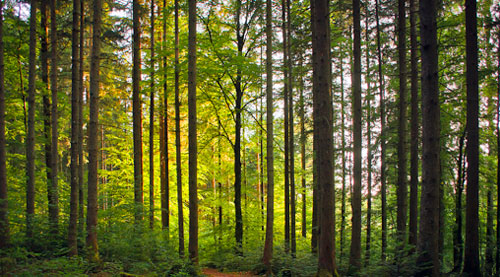More paper, more trees and more jobs
June 22, 2011
Role it grows on trees. Why is natural and renewable. And what role does grow trees: more paper means more trees and more rural employment. In Spain, to make paper, she is planted and grown pine and eucalyptus trees in 359,000 hectares of plantations, which are constantly replanting and regenerating, and pose 3,275 direct jobs and 9,655 indirect jobs in rural areas, according to data from the National Association of manufacturers of pulp, paper and cardboard (Aspapel).
2010 Used in our country to be 5.802.500 cubic meters of timber of eucalyptus and pine, 7.8% more than in the previous year, in line with the recovery of paper production. However, almost a third of the wood (31.7%) came from the import. While the national wood consumption grew only 3.2 per cent, imported wood consumption increased 19.2%.

Our forestry potential
The paper industry commitment for sustainable forest management and certification, a more efficient management of the plantations and the adequate mobilization of wooden stocks, but needs the support of the central and autonomous administrations to realize that forestry potential that now is missed.
The sustainable alternative for rural development
In Spain, plantations for paper are mainly of two very productive species, which grow very quickly: the eucalyptus and pine. In addition to increasing the wooded area and preserve the natural forests, productive plantations are very effective in the control of erosion and are, above all, an efficient sink of CO2. But not only in the environmental field offer us advantages pine and eucalyptus plantations. In a European country as Spain, where there are large uncultivated tracts of ancient agricultural and cattle land now abandoned, the cultivation of these productive species is a good alternative for rural development, through both employment creation live as indirect.
The plantations for paper represent rural 3,275 direct jobs associated with the work of afforestation and forestry crops of wood. Three-quarters of those jobs are linked to the plantations of eucalyptus for paper and the rest to pine plantations for paper production. These direct jobs we must add 9,655 indirect jobs (machinery, transport, talleres…) which represent an important means for promotion of rural development.
The 3.2% increase in the consumption of national wood for the manufacture of paper has led to an equivalent increase in forestry employment linked to this activity. And employment creation could have been much larger with a forestry policy which allowed a greater mobilization of national wood and a better use of our potential. National wood deficit forcing industry to rely on the importation of this raw material, posed an additional economic cost with the consequent loss of competitiveness of the sector, as well as the environmental costs due to transport.

More paper, fewer CO2
In 2010, the plantations for paper stored in Spain 5.7 million tonnes of carbon (more than 21 million tons of CO2 equivalent), representing a 10% increase over 2009.
Trees of rapid growth, as the pine and eucalyptus which used the paper industry is precisely because of this characteristic, the that more CO2 absorb. Eucalyptus, for example, annually set twice as many as five times more than the oak and chestnut. These productive plantations are also periodically rejuvenate with the felling of exploitation and consequent regeneration and replanting. And are the young trees, which are in period of growth, the that more CO2 absorb.
Crops of wood for paper are therefore large sinks of CO2 to help curb climate change. Because, in addition, the carbon stored in plantations is not released with the felling of the tree, but remains in the paper products and the period of storage is extending to recycle these paper products over and over again.



















